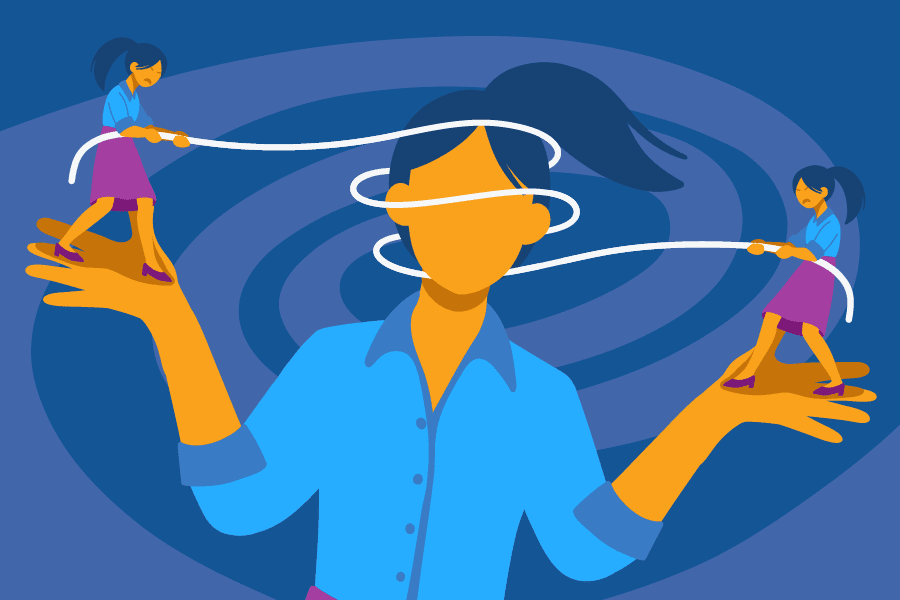Traumatic Brain Injury (TBI) & Substance Abuse
A TBI or Traumatic Brain Injury is a brain dysfunction, which is caused by an impact to the head or when any physical occurrence causes damage to the brain. They can also be called brain injuries or concussions.
What is a Traumatic Brain Injury?
For a TBI to occur there must be a mechanism of injury. It is not a disease or disorder that simply arises. There is no genetic or biological marker for developing a TBI.
However, individuals that are more active, and involved in high-impact or dangerous activities are at a greater risk for injury. Males below the age of thirty are considered to be at a higher risk of getting a brain injury. TBIs can be mild, moderate, or severe. Concussions are a common term for a mild TBI.
TBI Occurrences
In 2010, it was reported that 2.5 million people went to an ER due to a TBI. Additionally, it is believed that most mild TBIs occur without proper recognition and do not receive treatment. There has been a growth in education over the past few years and health care providers hope that recognition is increasing.
The rates for TBIs diagnosis are increasing; from 2001 to 2009 they rose by 57% for adolescents. However, it is unclear whether that is due to better education or higher rates of occurrence. Furthermore, those with TBIs have an increased likelihood of having additional mental health disorders and substance abuse issues.
The lasting effects of a TBI add to the possibility of other psychological issues such as anxiety, depression, PTSD, personality disorders, and substance abuse. Many individuals with a TBI need additional treatment and counseling for the behavioral issues that arise secondary to the injury.
Symptoms of a TBI
Once a TBI occurs, the damage to the brain has been done and cannot be reversed though there are therapies, treatments, and neuro rehab, which can help. Immediately after injury, a person will need to be stabilized and then can be evaluated for the severity of the injury.
There are initial post-accident symptoms and there are long-term consequences of a brain injury.
The initial symptoms can include loss of consciousness, confusion or amnesia, headaches, vomiting, seizures or convulsion, and issues with hearing, smell, and sight. The severity or presence of these symptoms can vary greatly.
Long-Term Issues Associated with TBIs
It is only in more recent years that the long-term symptoms of TBIs have begun to be recognized.
These issues can occur regardless of severity. It is also being discovered that repeated mild TBIs, often called concussions, over time, can be incredibly damaging and lead to severe lifelong issues. This is especially true when concussions begin during childhood. TBI’s lifelong effects can include:
Cognitive problems – Thinking, memory, attention, and reasoning
Sensory processing problems – Sight, hearing, touch, taste, and smell
Communication issues – Struggles understanding and expressing thoughts, feelings, and emotions
Behavioral/mental health issues – Depression, anxiety, aggression, impulsivity, inappropriateness, acting out
Increased inability for risk management – Poor judgment, inability to follow directions
Mood regulation issues – Increased anger, frustration, impatience
Parenting a Child with a Traumatic Brain Injury
From a parental point of view, the long-term symptoms can be incredibly hard to understand and manage. For many people, it can seem that their loved one has been replaced by someone else, but for others, the effects can be more subtle but no less damaging.
There might be slight personality changes, your son or daughter seems more reserved or withdrawn, he or she makes poor decisions in certain situations, or is more easily frustrated and quick to anger.
It can be hard to tell where the effects of a brain injury end and a person’s own behavior begins. However, these consequences pose a huge risk for your child.

Secondary Behavioral Issue for Those with TBIs
With the decreases in decision-making ability and risk aversion that are some of the hallmarks of a TBI, poor choices and thrill-seeking through substance use are very common. Additionally, many TBI sufferers have accompanying pain due to their injury, which can also open a path to substance abuse.
Teenagers are already vulnerable and can struggle with making safe decisions, a TBI can further degrade their ability to be safe and healthy. TBI sufferers also struggle with depression and anxiety both of, which increase the possibility of substance abuse. For parents and for those that have a TBI, understanding the increased risk for these secondary disorders is essential.
Finding Treatment After a Traumatic Brain Injury
Most individuals who are treated for a TBI will be prescribed some sort of pain medication. It is important for both the patient and their parents to understand the risks of addiction that these medication pose.
If a dependence or addiction to the medication or a secondary substance does occur, finding a substance abuse treatment facility is key for recovery. If you believe your child is addicted to a substance, offer drug treatment programs for teens that can help begin the recovery process.
By educating and preparing yourself and your loved ones, potential problems can be avoided or warning signs of changes in behavior, addiction, or other pitfalls can be recognized. As a drug treatment facility that additionally provides counseling for depression and anxiety, we can provide the support you need in helping you and your teenager.


Online Treatment Programs
Our virtual IOP program offers the same programming that we offer in person, all online – this is ideal for those who live too far to drive to an addiction center, have transportation issues, or have health concerns that make in-person treatment challenging.




